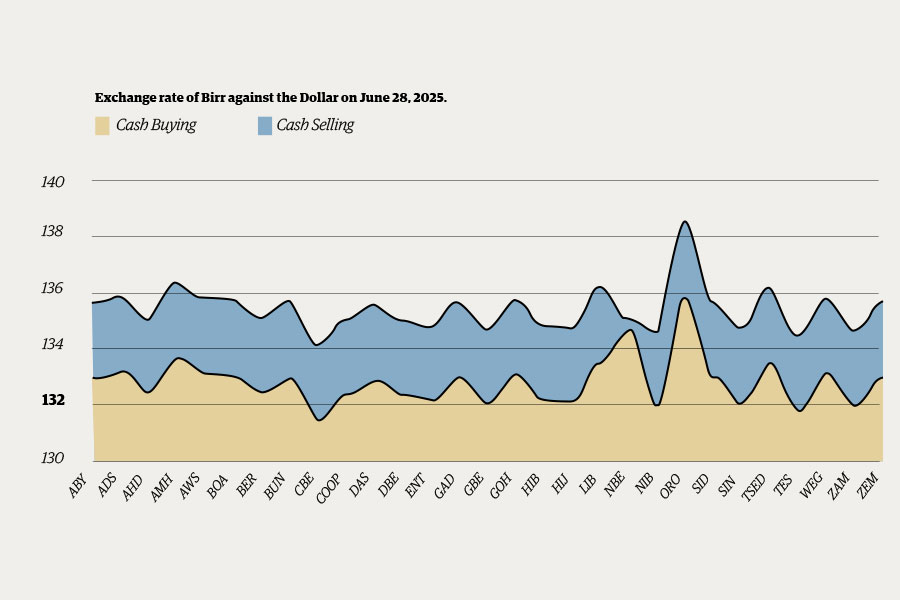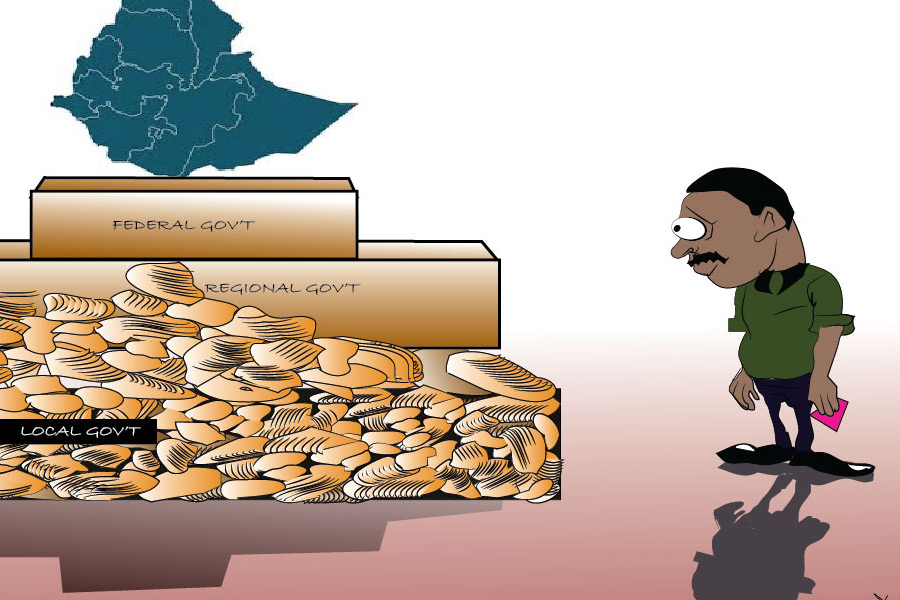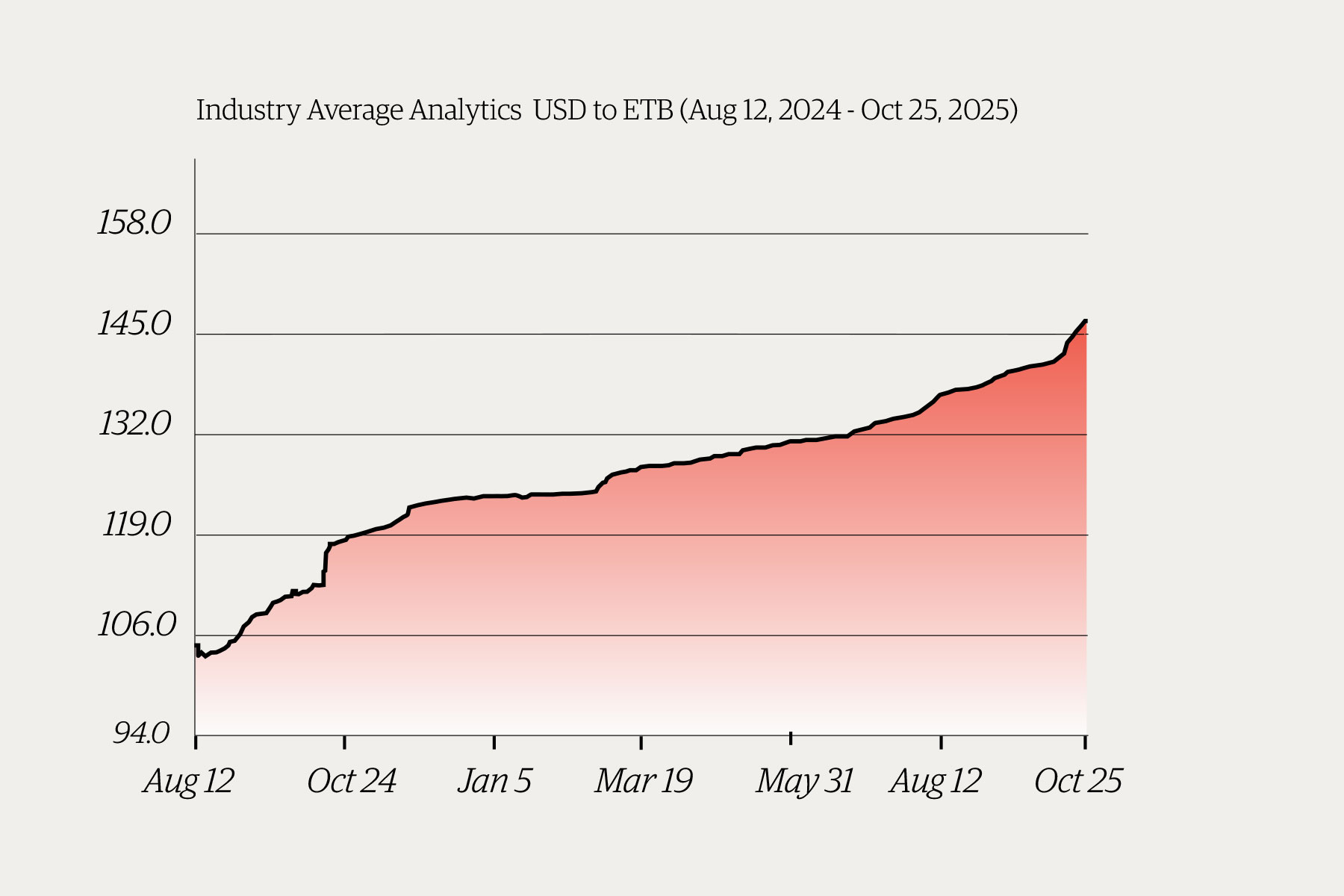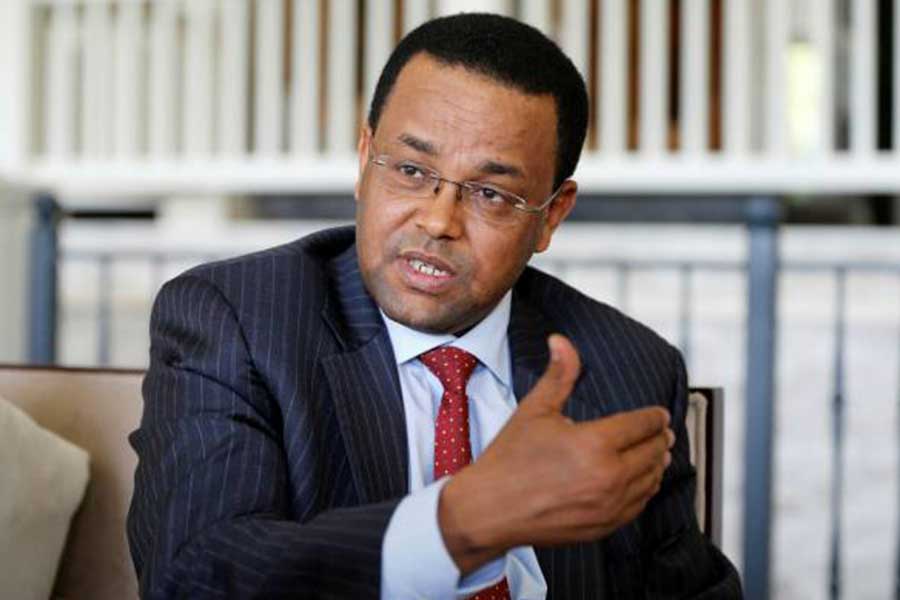
Without any formal communication and direction, commercial banks have entirely stopped local money transfer services following the ongoing currency demonetisation. A person who wants to transfer money has to open a bank account and transfer the money directly to the recipient's account.
Branch managers Fortunetalked to said that they had been verbally told by the head offices to stop the transfer of local money. They were also informed to give account-to-account money transfer services.
"We're informed that since cash transfer can be used for an illicit cash transaction," said a branch manager working at the Commercial Bank of Ethiopia (CBE), "we need to avoid it."
This creates another burden on banks since everyone who wants to transfer cash has to open accounts at every bank where transfers take place, according to Abdulmenan Mohammed, a financial expert with close to two decades of experience.
"It'll create a big disruption in the day to day activity of banks and the currency changeover," he said.
The ban on local money transfer services is not included in the two directives that were issued last week. The five-page directive stated that old notes redeemed for over 5,000 Br have to be effected through a bank account. Transactions over 50,000 Br in value have to be done through banks, which are supposed to file weekly reports to the central bank whenever they redeem old notes worth over 100,000 Br, according the directive.
The currency demonetisation, which was made after 17 years, came onto the scene due to an economic collapse, and as a measure against individuals who sought to hold large sums of cash, according to Prime Minister Abiy Ahmed (PhD).
In May, during a meeting that was held at the premises of the central bank, the Ethiopian Bankers Association had reported that 113 billion Br is roaming outside of banks.
It was shocking news for everyone in the banking industry, according to Zafu Eyesusuwork, board chairperson of United Bank.
"It is a question as to why the central bank didn't take action before all this happened," Zafu said.
The Association, which mentioned that the banks were hit by a severe liquidity crisis due to this, has also recommended the introduction of higher denominations and the security feature changes of the existing currencies, signaling that the latest changes are not incidental.
The currency change also aims at solving the liquidity crunch of banks among other causes, according to Yinager Dessie (PhD), governor of the central bank.
“We've been working to recover from the economic collapse,” Prime Minister Abiy said, during the currency change announcement that was held in a hall adjacent to the Office of the Prime Minister with the presence of cabinet members, board chairs and bank presidents. He explained that the currency demonetisation was planned and executed in the utmost secrecy with a secrete code name: ''Project X."
Being the fifth banknote change since Ethiopia first introduced banknotes in 1915 during the regime of Emperor Menelik II, the latest change has introduced a 200 Br denomination as the nation's highest denomination.
When the country started using banknotes, the highest denomination was 500 Br. In 1937, Ethiopia mandated the lone use of local currency for transactions. Before that, foreign currencies were used for transactions. In 1976, the latest bills got their features, and in 1997 Ethiopia received its most recent currency change, which added security features and changes designated for the blind. In 2005, Ethiopia introduced a coin for the one Birr note and introduced new security features.
The new 200 Br denomination has a security feature called spark, a dynamic colour-shifting ink with dynamic lighting effects used to identify genuine banknotes.
"The introduction of the 200 Br note will save printing costs and give more denomination options," said Yinager.
The colour and the security features of the 100 Br, 50 Br and 10 Br are also changed. The 200 Br denomination is purple, while the 100 Br and the 50 Br denominations are light blue and orange, respectively. The colour of the 10 Br note has been changed to green.
The change, which cost the government 3.7 billion Br, did not affect the five Birr note, which will stay in circulation until it is changed into a coin. The central bank, which printed 2.9 million notes worth 262 billion Br, has also introduced a currency symbol. The old currency is set to be entirely changed in the coming three months.
For the execution of the currency change, the government has formed a command post that will organise sudden raids on houses and offices, according to Prime Minister Abiy. Additionally, heavier than normal security is instituted at airports and border crossings. The government has also started stronger checks in the areas that are known for the parallel market in foreign currency exchange.
Individuals with over 100,000 Br have to go to banks within a month to change out their old currency, but after one month they will not be able to receive changeover services, according to the second and detailed directive that was issued at the end of last week. The 25-page directive that has detailed guidelines on what the banks do during the three-month changeover period was issued on Friday, three days after the banks started the changeover.
This shows that the currency demonetisation was made without proper preparations, according to Abdulmenan, who says that all the administrative directives should have been ready before the changeover began.
"Currency change isn't something like devaluation that is kept a secret," he said. "It should be done in a well-planned manner informing the banks and the community in advance to get ready for the changes."
PUBLISHED ON
Sep 19,2020 [ VOL
21 , NO
1064]

Money Market Watch | Jun 29,2025

Editorial | Dec 10,2018

Radar | Aug 12,2023

Fortune News | Jan 16,2021

Life Matters | Apr 06,2024

Money Market Watch | Oct 26,2025

Fortune News | Oct 23,2021

Fortune News | Apr 30,2021


Radar | Sep 28,2019

Dec 22 , 2024 . By TIZITA SHEWAFERAW
Charged with transforming colossal state-owned enterprises into modern and competitiv...

Aug 18 , 2024 . By AKSAH ITALO
Although predictable Yonas Zerihun's job in the ride-hailing service is not immune to...

Jul 28 , 2024 . By TIZITA SHEWAFERAW
Unhabitual, perhaps too many, Samuel Gebreyohannes, 38, used to occasionally enjoy a couple of beers at breakfast. However, he recently swit...

Jul 13 , 2024 . By AKSAH ITALO
Investors who rely on tractors, trucks, and field vehicles for commuting, transporting commodities, and f...

Oct 25 , 2025
The regulatory machinery is on overdrive. In only two years, no fewer than 35 new pro...

Oct 18 , 2025
The political establishment, notably the ruling party and its top brass, has become p...

Oct 11 , 2025
Ladislas Farago, a roving Associated Press (AP) correspondent, arrived in Ethiopia in...

Oct 4 , 2025
Eyob Tekalegn (PhD) had been in the Governor's chair for only weeks when, on Septembe...